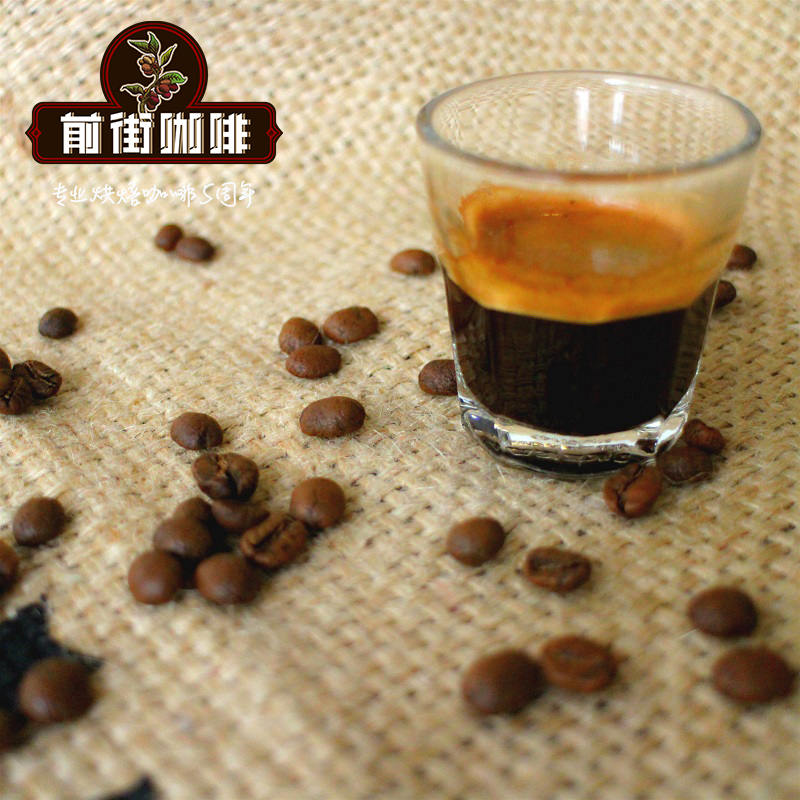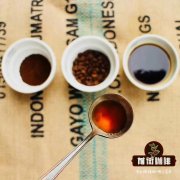The Development of Fine Coffee in Yunnan, China how to plan for the future small-grain coffee is not the only way out

Professional coffee knowledge exchange more coffee bean information please follow the coffee workshop (Wechat official account cafe_style)
Chinese Coffee looks at Yunnan
Yunnan is one of the earliest provinces in China to grow coffee. At the end of the 19th century, missionaries from Europe went to Yunnan Dali and other places to preach, bringing coffee seeds to Yunnan. In the early stage after liberation, Lujiangba in Baoshan was successfully planted, and it was found that it had good adaptability and good quality, and it continued to grow.
At present, coffee has been planted in 35 counties in 9 prefectures, including Pu'er City, Baoshan City, Dehong Prefecture, Lincang City, Wenshan Prefecture and Xishuangbanna. As of the beginning of last year, the coffee planting area in China exceeded 1.8 million mu, while the coffee planting area in Yunnan reached 1.77 million mu, accounting for more than 98% of the country's total.
In 2016, China produced 140000 tons of raw coffee, accounting for 1.5% of the world's total output, while Yunnan Province produced 139000 tons of raw coffee, accounting for more than 99% of the country's total output.
It is no exaggeration to say that Chinese coffee looks at Yunnan.
As a microcosm of the development of China's coffee industry, the development degree of "Yunka" determines the status of Chinese coffee in the world, but for a long time, Yunnan has mainly sold coffee beans, which is insufficient with downstream processing, and the profit space is not large. in addition, the coffee planting area is developing too fast, and the quality is difficult to control, which gradually becomes a hidden worry for development. The palate has low viscosity, obvious herbal flavor and high sweetness.
But the problems existing in the development of coffee in Yunnan
Single tree species and lack of diversity
Although at present, there are also a lot of innovation and change of the second generation, brands are trying to introduce rose summer, bourbon and other tree species. However, the iterative process of exotic tree species from small-scale trial planting to large-scale planting takes at least more than 10 years.
For a long time in the future, it will still be dominated by Katim, which leads to a single tree species and lack of flavor diversity.
There is no unified grading standard, talk to yourself.
Yunnan beans are in urgent need of a unified grading standard, although YCE is divided into three levels: commercial beans, high-quality beans and fine beans. But the promotion is very difficult, many people do not recognize it, and everyone goes his own way.
This leads to opaque prices, and the desire to buy beans of high quality and low price depends on luck. The opacity of the purchase system greatly increases the cost of decision-making and affects the choice of Yunnan beans in cafes.
There are many small retail investors, so it is difficult to guarantee their stability.
In Yunnan producing areas, there are few large factories with mature processing experience and sales channels, and there are many retail investors. Many family workshop-style treatment, easy to make coffee quality instability, and there is no unified output way, lack of awareness of processing cost control.
The second is the lack of investment in funds and equipment, and the inability to use technology to avoid the instability of picking and handling, which may lead to this batch, this producing area is very good this year, but not necessarily next year. For big brands and bakeries, the unstable source of raw beans has become the reason for them to choose Yunnan beans.
It is a fact that there are high-quality high-quality beans, and it is also a fact that there are many defects in beans; it is a fact that more and more attention has been paid, and it is also a fact that many coffee trees have been cut down.
In the midst of drastic changes, the survival of the fittest may take a long time for agriculture. However, standardized planting, picking, standard treatment methods, and a unified grading system are also slowly popularizing in Yunnan.
With regard to the taste of coffee belonging to China, I think most people will have the same wish as Chen Danqi: "in the future, don't talk about going beyond Panama. I just hope that Yunnan will be one of the options when it comes to boutique coffee producing areas."
Important Notice :
前街咖啡 FrontStreet Coffee has moved to new addredd:
FrontStreet Coffee Address: 315,Donghua East Road,GuangZhou
Tel:020 38364473
- Prev

China's coffee and tea, whether China contains coffee or coffee stands proudly in China.
Professional coffee knowledge exchange more coffee bean information please follow the coffee workshop (Wechat official account cafe_style) coffee and tea, is one of the representatives of Chinese and Western cultures. A mysterious leaf reflects the plant character of Easterners, while the endosperm that gives birth to life represents the animal character of Westerners. During the New Culture Movement, Li Dazhao wrote the article "differences between Chinese and Western cultures".
- Next

Coffee Bean roasting degree Coffee Flavor Coffee Bean Baking basic knowledge
For more information on coffee beans, please follow the normal roasting in the coffee workshop (official Wechat account cafe_style): this roasting takes about 10 minutes, the color is between brown and light brown, the taste is relatively balanced, and the appearance is smooth and flawless. Light roasting: a short period of roasting will make the coffee beans underdeveloped, and the caramel inside the bean heart will reverse.
Related
- Beginners will see the "Coffee pull flower" guide!
- What is the difference between ice blog purified milk and ordinary milk coffee?
- Why is the Philippines the largest producer of crops in Liberia?
- For coffee extraction, should the fine powder be retained?
- How does extracted espresso fill pressed powder? How much strength does it take to press the powder?
- How to make jasmine cold extract coffee? Is the jasmine + latte good?
- Will this little toy really make the coffee taste better? How does Lily Drip affect coffee extraction?
- Will the action of slapping the filter cup also affect coffee extraction?
- What's the difference between powder-to-water ratio and powder-to-liquid ratio?
- What is the Ethiopian local species? What does it have to do with Heirloom native species?

